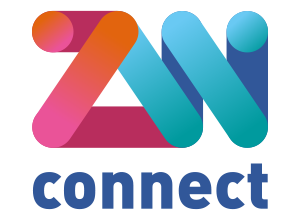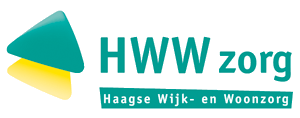The growing emphasis in healthcare on quality, efficiency and cost savings places a heavy burden on healthcare organizations. The capacity shortage and the increasing complexity of the healthcare demand further increase the pressure. To provide the best possible service and increase efficiency, investing in data-driven working is no longer an option, but an absolute necessity. The municipality of The Hague, employers' association ZWconnect and IT company DAAT have developed an approach to help healthcare organizations work effectively with data: Datalab Zorg en Welzijn.
In an increasingly critical and demanding healthcare landscape, meeting these challenges on an ad hoc basis is becoming increasingly complex, even for the most skilled administrators. Fortunately, data can play a valuable role in addressing these challenges. Whether it concerns the management of capacity, absenteeism, staff shortages or broader strategic issues ranging from recruitment policy to the choice of care packages, (insights from) data makes informed decisions possible.
In addition, data can help find solutions to broader issues, such as whether an organization should specialize, identifying strengths and areas for improvement, and assessing performance across departments.
Step-by-step plan for data-driven success
To provide healthcare organizations with the tools and guidance to deal effectively with data, the municipality of The Hague, ZWconnect and DAAT have developed the step-by-step plan 'Datalab Care and Welfare'. The approach of the Healthcare and Welfare Data Lab is aimed at making organizations future-proof. Employees are involved step by step and trained in developing a data strategy, setting up a solid data infrastructure and solving data-driven issues. The ultimate goal is that organizations can work with data independently and at all levels.
Charlotte Krom, program manager of the healthcare innovation program Technology for Home of the municipality of The Hague, explains: “We found that many organizations were working on strategies in the field of technology, but that only a few applied a data-driven approach in their business processes or activities. It is often found difficult to obtain the necessary knowledge and resources in-house. We want to help organizations move forward through the effective use of data for insights and decision-making. This not only means being able to focus on reducing errors and improvements, but also seeing measurable effects and exploring different scenarios.”
In-depth insights based on data enable organizations to optimize processes and services and strengthen their position. According to Krom, this results in improved capacity, more predictability, higher quality of care and a solid financial basis.
“However, it is important to realize that while data can be used to gain insights and make decisions, healthcare is about human interaction. It requires human interpretation and decision-making to translate data into valuable information. Understanding which choices can be made based on which data is human work.”
Flexible collaboration model
In addition to the step-by-step plan, the Care and Welfare Data Lab offers a flexible collaboration model in which healthcare organizations can have a fully multidisciplinary team at their disposal for a certain period. This team works closely with the internal team and consists of healthcare specialists with expertise in data engineering, data modeling, programming, business intelligence, information security and project management.
“Many healthcare organizations, and especially smaller and medium-sized healthcare providers, often do not have the capacity and resources to hire a full team of data specialists,” Maartje Bouwens, Innovation project leader at ZWconnect, explains the reason for the collaboration model. “Through the Healthcare and Welfare Data Lab, we want to support organizations by offering them the opportunity to bring in such a complete team of experts and develop policy together.”
The advantages of this are that not every healthcare organization has to recruit staff itself in the current tight labor market and that expertise can be shared. The team works according to the Scrum methodology, which enables organizations to learn and innovate quickly.
Healthy labor market
In order to keep up with the rapid developments in the healthcare sector, it is crucial that healthcare organizations innovate. Bouwens points out the need for a healthy labor market, where organizations and employees are prepared not only for current challenges, but also for future challenges resulting from the growing demand for care. “With the help of the Healthcare and Welfare Data Lab, ZWconnect wants to help organizations have constructive conversations and make decisions. We want to encourage people to work more efficiently and collaborate with the aim of a healthy labor market where employees can enjoy their jobs.”
The Data Lab also has an important focus on social involvement, Bouwens continues. “We involve people who are at a distance from the labor market in our multidisciplinary team, where they gain valuable experience, develop skills and find their way to sustainable employment. This initiative not only helps the employees involved, but also contributes to alleviating labor shortages and fulfilling the social obligations for healthcare organizations.”
A proven approach
HWW care in The Hague is an example of a healthcare organization that has successfully implemented the Data Lab approach. HWW wanted to make the transition to data-driven working in order to make better-founded decisions and monitor the progress of these decisions. “The Data Lab has helped us to tackle this at different levels, using a clear and simple step-by-step plan,” says Zazie Wolters, ICT and Innovation manager at HWW care. “The process is transparent, collaborative and really fun.”
Initially, the HWW Data Lab helped healthcare to gain insight into the data required to tackle important challenges, such as absenteeism and bed occupancy. Work has been done on the data architecture and the establishment of a multidisciplinary data team to anchor data-driven working in the organization, says Wolters. “Our data team employees are very enthusiastic about the concrete and useful results we obtain. The Datalab's scrum approach is also particularly motivating. We are learning a lot and the data team is becoming more and more professional.”
HWW care now has three dashboards that help make better decisions and optimize processes. “Thanks to the Data Lab, we have already achieved many successes at various levels in the organization,” Wolters continues. “Managers and location managers can now use the dashboards independently to make well-considered decisions, without being dependent on others within the organization. The healthcare mediation manager has to do much less manual work to gain insights. The healthcare offices can now be better informed by us based on the correct data. Moreover, the absenteeism dashboard leads to increased attention for the subject of 'absenteeism'. The good conversations about this can now be better supported.”
Future-proof care
The future of the healthcare sector is determined by data and innovation. Datalab Zorg en Welzijn wants to set the tone for this change. It provides structure and guidance for a successful transition to a data-driven organization, and also stimulates multidisciplinary collaboration and social involvement.
By investing in data-driven work, healthcare organizations can not only meet the growing demands of today, but also prepare for the challenges of tomorrow. This enables the healthcare sector to be future-proof and continue to provide the best possible care.
CV

Charlotte Krom
Program manager of the healthcare innovation program Technology for Home of the municipality of The Hague.

Maartje Bouwens
Project Leader Innovation at ZWconnect.

Zazie Wolters
Manager ICT and Innovation at HWW healthcare.

Frank Wensink
Director of IT company DAAT. His expertise and experience lies in information provision in healthcare and municipalities.
 Nederlands
Nederlands العربية
العربية Türkçe
Türkçe Español
Español Polski
Polski Română
Română Български
Български 简体中文
简体中文








